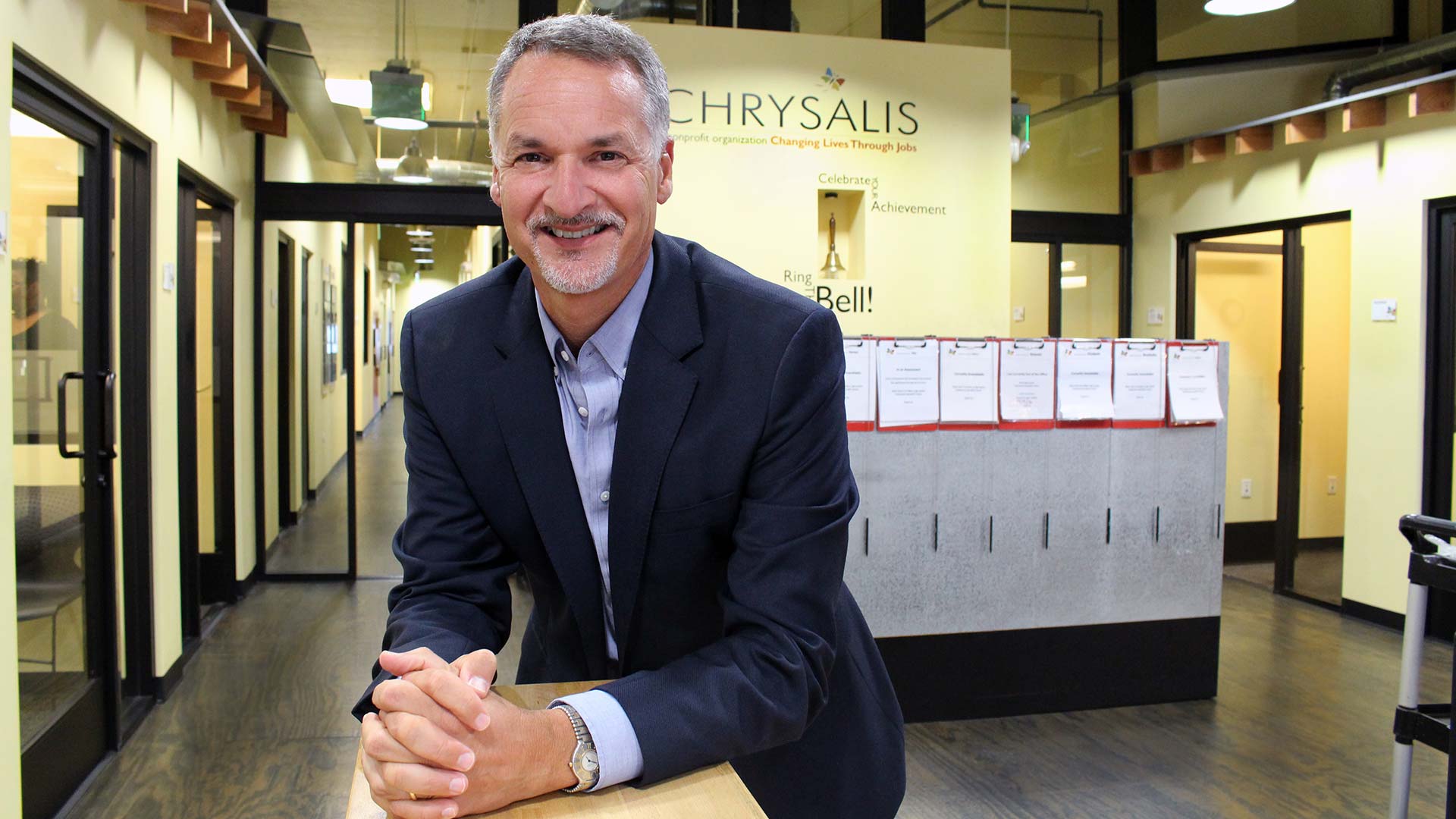Q&A by: Zoie Matthew
The L.A. nonprofit Chrysalis has been linking resources, job training, and transitional employment with homeless individuals for more than three decades. But the recent surge in the homeless population (it grew 20 percent between 2016 and 2017 in Los Angeles County alone, skyrocketing to 57,000) has only toughened an already challenging task. We spoke with Chrysalis president and CEO Mark Loranger about the crisis and his organization’s work.
Q: Homelessness is nothing new. What are some of the factors contributing to the booming homeless population?
“There isn’t any one single thing, because if there was, we could probably fix it very easily. I think you start with a community or region that is extraordinarily difficult to live in, costwise. It’s very expensive to live in Southern California, and people are spending upwards of 50 percent or more of their disposable income on housing. Homeless individuals may have lost a job in the downturn in 2008 or 2009, and maybe their home was foreclosed on, so they moved into a rental property. And then maybe they couldn’t afford that, and so they moved into a car or they moved in with friends or something else. This cycle can take years to play out. Another factor is mental health. The infrastructure that we have to take care of individuals with mental health challenges throughout the nation is very weak. So you mix all that together and, well, here we are.”
Q: For those homeless individuals who can work, what day-to-day issues prevent them from finding employment.
“Being homeless is, in some ways, a full-time job. You think about, Where am I going to sleep tonight? Where am I going to use the toilet? Where am I going to store my stuff? Where am I going to get a meal? If you’re staying in a mission on skid row, there are all kinds of rules about how long you can stay there, how much stuff you can bring in with you. Finding a job is important, but those things kind of rank higher on the scale of problems.”
Q: Chrysalis aims to break down barriers to employment. How?
“The kinds of barriers that we’re talking about are housing-related issues, financial issues, child-care issues, and criminal-background issues. It can take a week, a month, a year in some cases, to come up with strategies to overcome those barriers and build up the self-esteem and the confidence of the individual so they can successfully execute a job search. Our mission is to work with people in poverty to help them get back on the pathway to self-sufficiency. If you need interview-appropriate clothing, we’ve got that. If you need an e-mail address, we’ll help you set that up. If you need a mailing address, you can use our office’s mailing address. The other component of our program is that we own and operate three businesses that are designed to provide our clients with work for anywhere from 6 to 12 months, where they pick up marketable real-life skills and are earning a wage doing it.”
